
Say Goodbye to Spring Allergies: How Air Purifiers Can Help Conscious Parents
As the buds bloom and nature awakens from its winter slumber, spring brings with it a vibrant burst of life. However, for many, this seasonal
Call us on 0333 015 4345 or email hello@theconsciousparent.co.uk
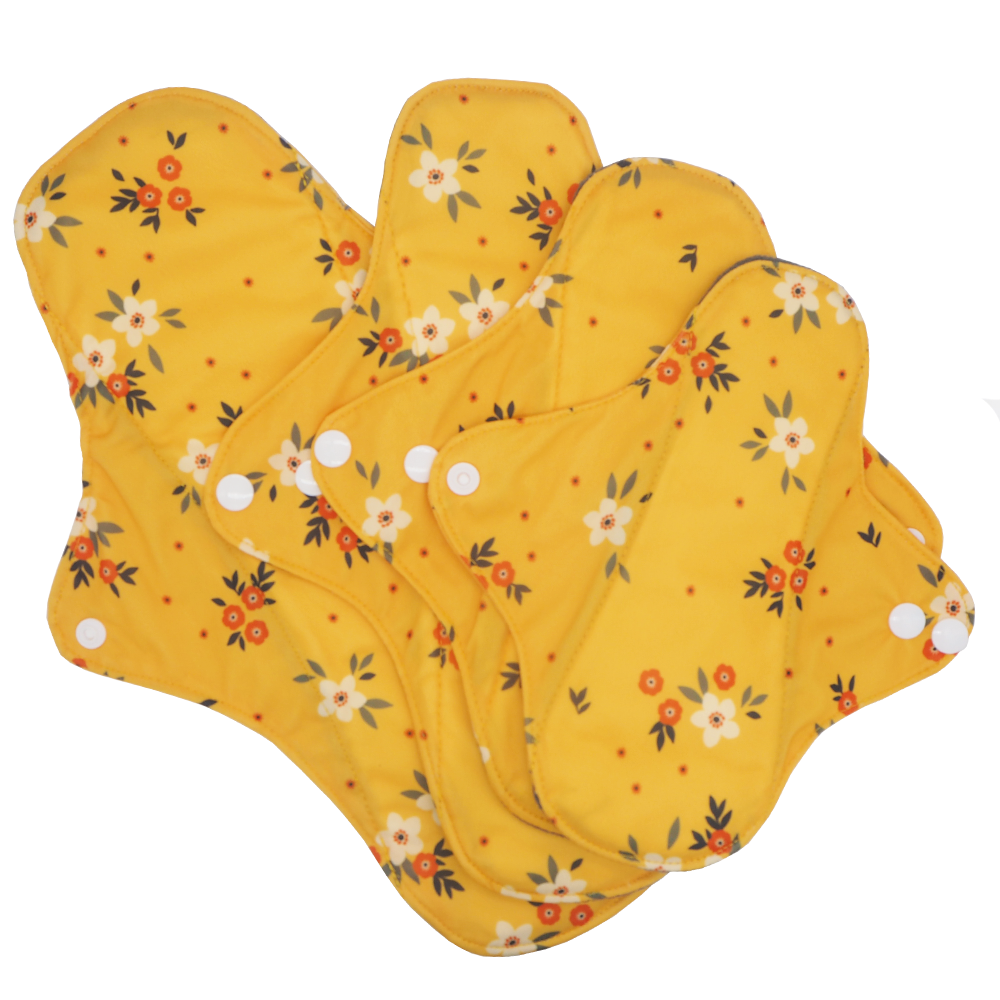
After you give birth, it can take a while for your periods to start again.
But even before you return to your monthly cycle, all new mums experience vaginal bleeding after giving birth.
This is a common and temporary condition known as postpartum bleeding, or lochia. In this post we’ll discuss how long you might expect postpartum bleeding to last, and how you might manage it while it lasts.
Almost immediately after you’ve given birth, your body will start to get rid of all the blood, mucus and other tissue that built up during pregnancy. And that’s all postpartum bleeding is – your body discharging all the stuff it no longer needs to support your baby.
Almost all new mums experience postpartum bleeding, whether you gave birth vaginally or via a C-section. But you’ll probably find lochia to be different from menstruation. First of all, the flows can be much heavier and they can last much longer. The discharges might also contain some things that aren’t part of a regular period, including tissue from your uterus, and mucus.
Every woman is different. You’ll likely experience the heaviest postpartum bleeding for up to 10 days following birth, though it might start to taper off as little as three days after birth. After this, you might experience much shorter or lighter flows, or even just spotting. This might last for up to six weeks following birth.
The colour of the discharges will gradually change, from red, to pink, to brown, to an off-white yellowish colour.
Eventually your regular menstrual periods will start again. How soon they start will depend on how you choose to feed your baby. This is because prolactin, the hormone that encourages your body to make breastmilk, can interfere with the hormones that cause your periods. So if you breastfeed your baby, your periods might not start again until you finish nursing.
Be sure to read our full guide to what to expect from your periods after birth.
Postpartum bleeding is completely natural. However, some women are at risk of postpartum haemorrhage up to 12 weeks after giving birth. So if you experience something like a heavy period, but it’s accompanied by other symptoms – including blurred vision, chills, dizziness, nausea and a rapid heartbeat – call your doctor immediately.
If your heavy bleeding shows no signs of slowing or stopping, call 999.
So postpartum bleeding is natural and, in almost all cases, it’s absolutely nothing to worry about. But there are a few things you can do to manage your postpartum bleeding, to help you stay as comfortable as possible.
The most important thing is that you take it easy. If you do too much too soon, you might affect your body’s natural healing processes. This might prolong your postpartum bleeding period, or make your discharges less regular and harder to manage.
Also, wear only your most comfortable and loose-fitting clothes during your postpartum recovery period. And as stains from spotting are basically inevitable, don’t wear any of your favourites until you’re fully recovered.
Finally, you’re going to want to do something to manage the flow. Don’t use tampons, as these can cause infections in your recovering uterus and vagina. Instead, use only sanitary pads, even if you prefer using tampons for your regular periods.
We make our postpartum pads from only soft and natural materials, without any harmful chemicals. So they’re kind to your body while remaining absorbent enough to catch even the heaviest of postpartum flows. And because they’re reusable they’re better for the planet too.
Browse our complete range of reusable postpartum pads.

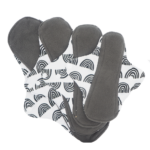
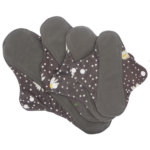
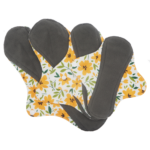

As the buds bloom and nature awakens from its winter slumber, spring brings with it a vibrant burst of life. However, for many, this seasonal

Babies don’t develop self-awareness until they’re around two years old. At around this time, they’ll come to realise that they’re seeing themselves when they look
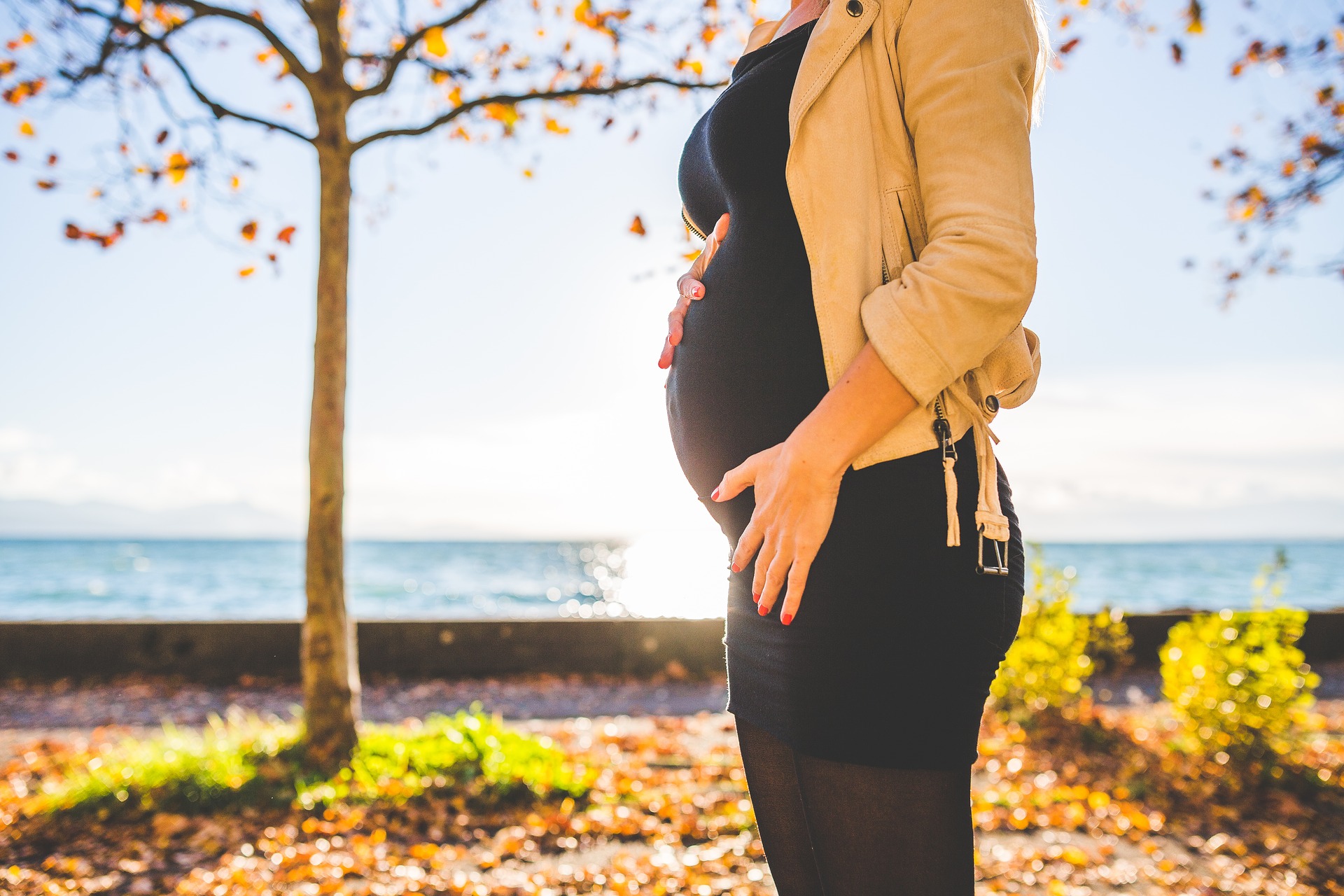
The Conscious
Parent Company
G4 Business Centre
19-21 Carlisle Street East
Sheffield S4 7QN
0333 015 4345
hello@theconsciousparent.co.uk
